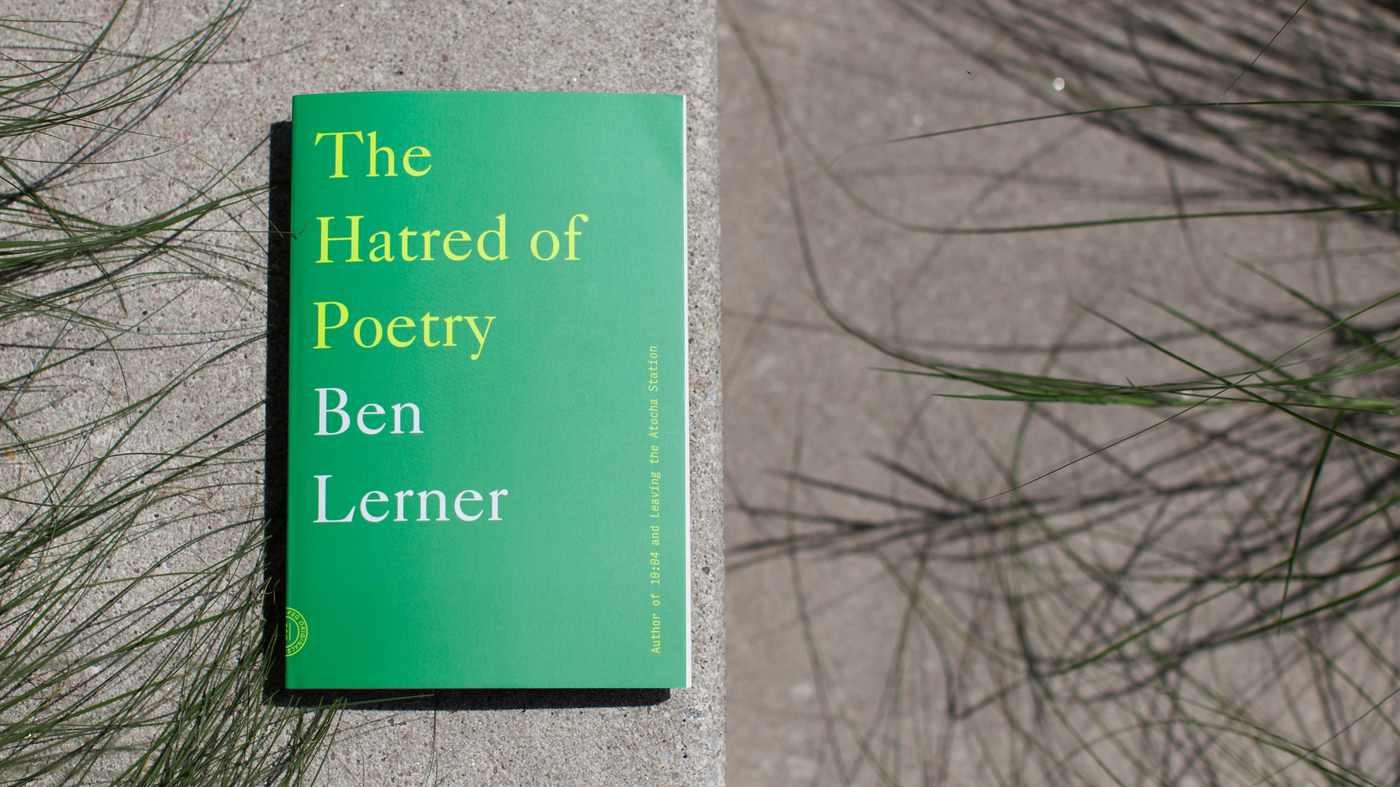In the summer issue of Bookforum, lauded poet and critic Meghan O’Rourke reviews The Hatred of Poetry by fellow lauded poet Ben Lerner. The book is a compact and wry essay on why people hate poetry, especially poets themselves. Specifically, Lerner asks why poets, perhaps more than other kinds of artists, rue the gap between their artistic vision and the mundane reality of the poems they produce. Why do poets today feel like they can’t live up to the transcendental promise of poetry? Read an excerpt from O’Rourke’s review below or the full text here.
Lerner is fascinated by the question of why people dislike poetry—and most important, why poets dislike poetry. A wry, highly self-conscious guide, he lures us in by sharing with the reader that, at events, when he or another poet is introduced, the words I, too, dislike it run through his head. When he is teaching or discussing poetry, the phrase sometimes takes on “the feel of negative rumination and sometimes a kind of manic, mantric affirmation, as close as I get to unceasing prayer.” It’s sort of crazy, he acknowledges—yet interesting: “What kind of art assumes the dislike of its audience and what kind of artist aligns herself with that dislike, even encourages it? An art hated from without and within.”
Lerner does talk in this book about the dislike ordinary readers have for poetry, which he attributes to an identification of poetry with one’s inner selfhood (not entirely jokingly, he cites the childhood rhyme “You’re a poet / and you don’t even know it”). Later, alienated from this source of value, adults denounce poetry in what he sees as an elaborate “reaction formation.” Lerner could more satisfyingly say much more here than he does—about the role of American anti-intellectualism, for instance, or about the historical specificity of current readers’ dislike, having to do with the rise of modernism and the “difficulty” of some contemporary poetry—but the book’s real focus is on why poets hate poetry.
Poets hate poetry, he argues, because the “actual” poem can never live up to what the poet and critic Allen Grossman has termed the “virtual poem,” or poetry with a capital P—“the abstract potential of the medium as felt by the poet when called upon to sing.” The poem is “always a record of failure,” evidenced here by the story of the early Anglo-Saxon poet Caedmon, who dreams of having sung an exquisite song, only to find, in daylight, that his actual songs fail to achieve such heights. “Poetry isn’t hard, it’s impossible,” Lerner provokingly asserts.
Image via NPR.
